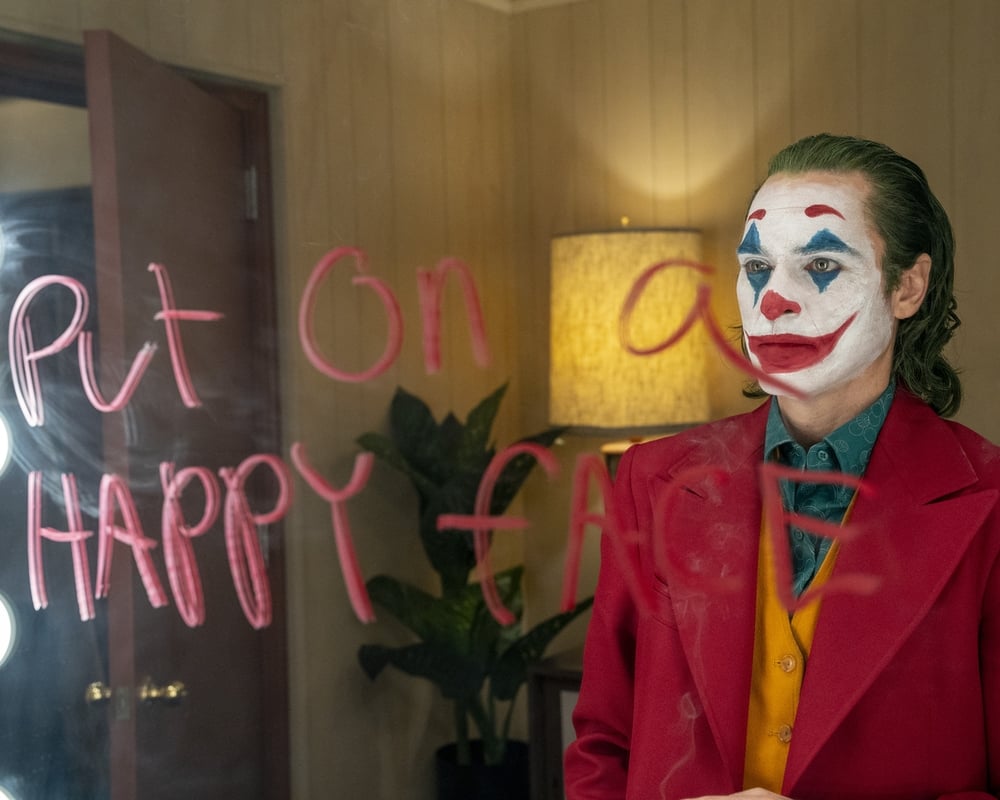Does ‘Joker’ Harm or Help the Public’s Perception of Mental Illness?
Mental illness is a topic often treated with sensitivity in the media. However, media has a history of misrepresenting the topic and sometimes even demonizing it. Characters with mental illnesses are sometimes depicted as volatile, violent, and otherwise destructive individuals. Critics of Todd Phillips’ latest psychological thriller, Joker, claim that the film seems to fall into this exact trap.
Unlike many other depictions of The Joker, Joker attempts to explain why the titular character became the monster he did. However, audiences and critics worry that this explanation will add further stigmatization to mental illnesses, or worse, breed the belief that people who suffer from mental illnesses should be treated as social pariahs and avoided. Others argue that Joker points out realistic issues within the mental health community and has a poignant moral for audiences to reflect on. So, is Todd Phillips’ Joker a helpful or harmful addition to the many various depictions of mental illness in the media?
*The following article discusses topics related to Joker, such as child abuse, violence, and mental illness. The article also contains spoilers for Joker.

‘Joker’ is brutally honest about the struggles of having a mental illness
In one of the more heart-wrenching scenes of Joker, Arthur Fleck, played by Joaquin Phoenix, scribbles out a depressing message in the journal he uses to store his jokes and performance ideas for his dream of becoming a stand-up comedian. Arthur writes, “The worst part about having a mental illness is people expect you to behave as if you don’t.”
This quote can hit very close to home for many people who struggle with mental health issues. Society as a whole has come a long way in terms of how we handle mental health, but we still have a long way to go. In Joker, Arthur suffers from a condition known as “pseudobulbar affect“, which causes the afflicted individual to laugh or cry with extreme intensity during inappropriate moments. Instead of receiving care and sympathy from his peers, Arthur is isolated, mocked, and even violently beaten when his condition acts up throughout the film.
These instances prove that Arthur is somewhat right about society’s expectations of him regardless of his mental state, making his downfall seem all the more tragic.

‘Joker’ seems to directly connect the root of violence to mental illness
The film clearly intends to make a statement about how society treats people with mental illnesses as a whole, but inadvertently provides enough justification for neurotypical viewers to feed their fear and misunderstanding of mental health.
Every symptom of mental illness that Arthur exhibits is used as evidence for his impending descent into homicidal madness. Joker seems to frame Arthur’s pseudobulbar affect as a giddy, comic response to carnage and violence rather than a disorder of the nervous system.
At the very end of the film, Arthur explicitly cites his struggle with mental health as the catalyst for his horrific actions. Before brutally murdering his idol and favorite television personality, Murray Franklin, played by Robert De Niro, Arthur asks, “What do you get when you cross a mentally ill loner with a society that abandons him and treats him like trash?”
The answer to Arthur’s hypothetical question appears to be quite simple: an endless cycle of violence.
In actuality, there is no proven connection between violence and mental illness. According to a study completed by the National Institute of Mental Health, one in five people live with some type of mental illness. In fact, studies have shown that people who live with mental illnesses are more likely to be a danger to themselves than to others.
The dangerous connection that Joker draws between mental illness and the capacity to commit acts of violence further strengthens an already established stigma against those who live with mental health issues.

‘Joker’ realistically depicts the struggle of seeking treatment for mental illness
While Arthur is never given an official diagnosis or labeled with a condition, he continues to reference and seek treatment for his mental illness(es) until his eventual downward spiral into violence. At the beginning of Joker, we see Arthur meeting with a social worker to discuss his mental condition. We learn that Arthur is taking seven different medications but still struggles with symptoms of his mental illness.
His mental condition takes a turn for the worst after Gotham City reduces funding for social services and shuts down Arthur’s psychiatric center, leaving him without medication and any form of treatment. This is a very painfully real struggle that people who live with mental illnesses face. Even though millions of people struggle with mental health issues, studies reveal that only two-thirds of those afflicted actually seek help from a professional.
Arthur’s trauma and mental illness seem to justify his violent actions
In Joker, it is revealed that Arthur suffered from severe physical and psychological abuse at the hands of his biological father. The physical trauma, which included a head injury, is heavily implied to be part of the reason for Arthur’s actions and behavior.
“It’s hard not to have sympathy for somebody who experienced that level of childhood trauma: an overstimulated medulla looks for and perceives danger everywhere,” said Joaquin Phoenix in an interview with IndieWire, “For someone in that state, does it mean his actions make sense or are justified? Obviously not. There’s a point where he crosses the line where I am no longer able to stick by his side.”
Phoenix makes an important point in this statement that Joker itself seems to ignore: it’s never clear when Arthur crosses the line. Arthur’s violent side is only triggered when someone hurts him or crosses him, making his horrific acts seem almost justifiable. His actions are further validated when he becomes somewhat of a celebrity vigilante with a following.
Joker seems to suffer from an overused, toxic formula that has repeated itself in cinema for a very long time. The film seems to use Arthur’s trauma from childhood as well as his struggle with mental illness as a means to earn sympathy from the audience, rather than disgust from his actions.
‘Joker’ sparked dialogue about the importance of mental health care
Asking whether Joker did more harm than good when it comes to the stigma surrounding mental health issues is a tough question. In some ways, the film succeeded in creating a powerful glimpse of how people with mental illnesses are treated in society. In other ways, Joker seems to use mental illness as a plot device to justify Arthur’s horrible actions.
“One of the themes we wanted to explore with the movie is empathy and, more importantly, the lack of empathy that is present in so much of Arthur’s world,” Phillips mentioned in an interview, “It’s not inherent, we have to learn how to be unaccepting of others and, unfortunately, we usually do.”
Overall, Joker clearly had good intentions, but the film’s message became foggy when the line between creating empathy for those struggling with mental illness and rationalizing violent behavior was blurred. Regardless, the film has people discussing mental health, which is a stride toward progress in itself.


